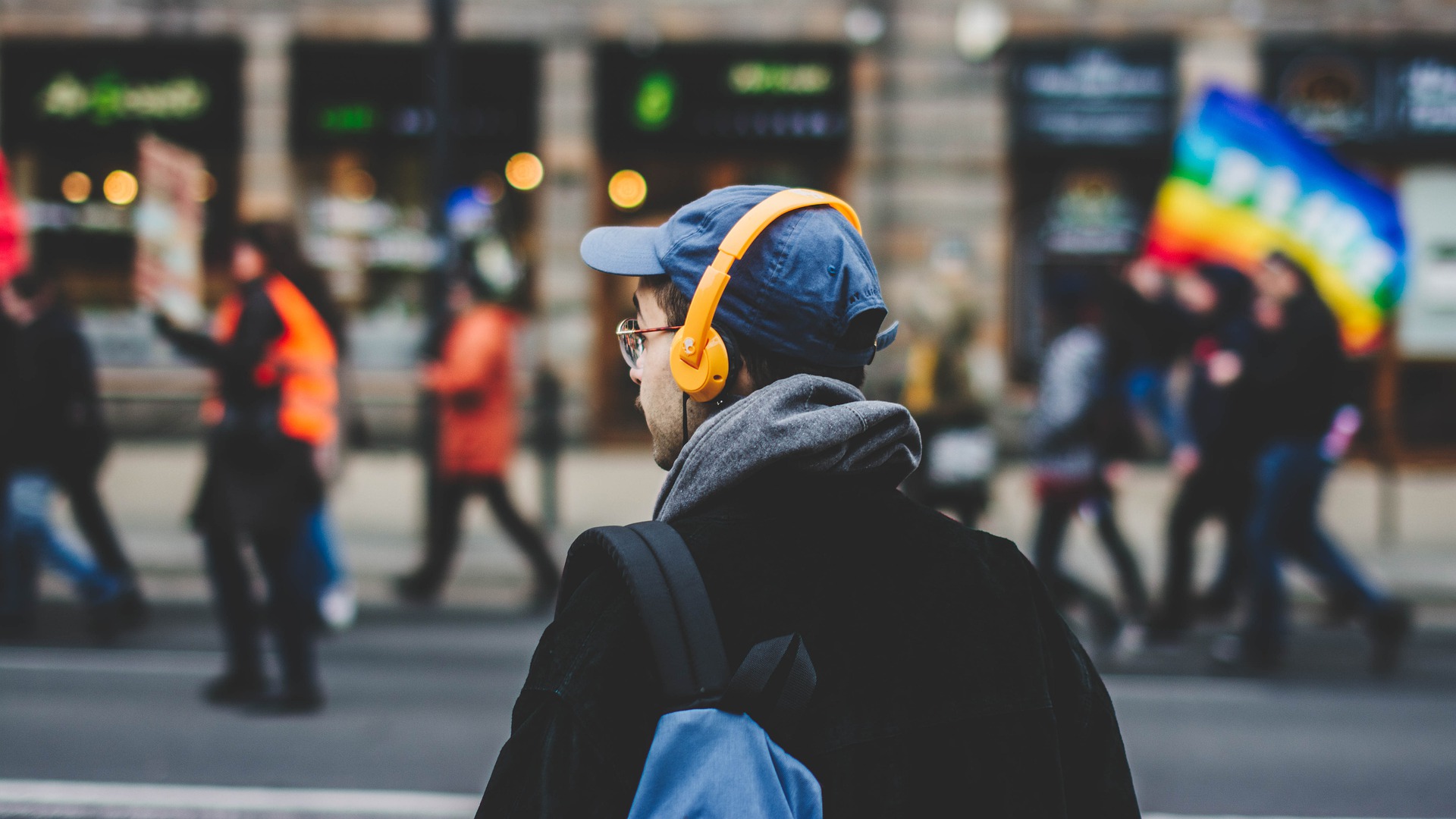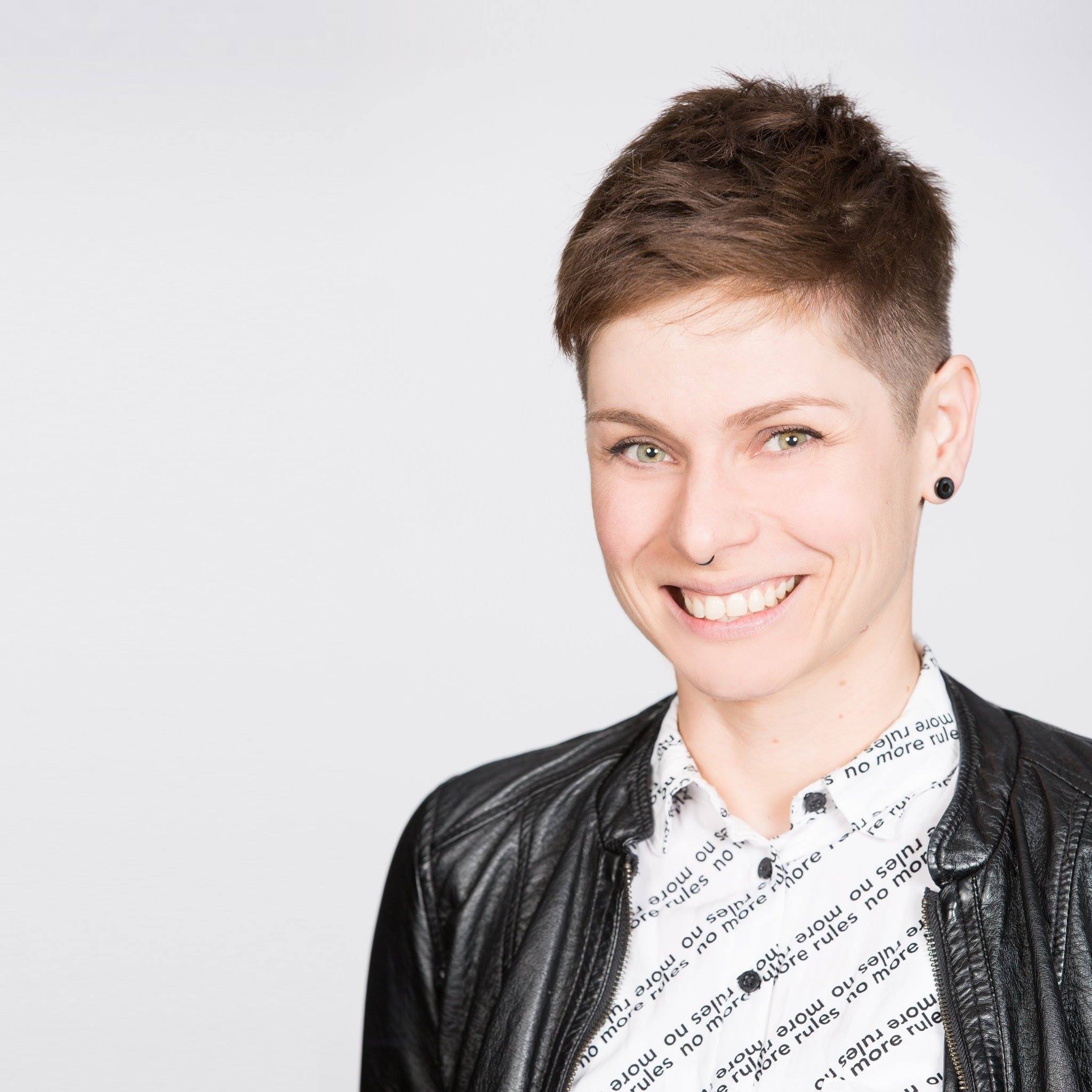
"Don't give me rainbows now": This is how queer-sensitive listening works
"I celebrate Christmas with my family. My boyfriend is not welcome there." "My pronouns are in the signature. I still get misgendered at work." "Even if I am in love with a person, I don't want to have sex with them." "I don't go to public toilets. It's just too dangerous for me."
For many of my clients, statements like these are part of everyday life. It is not always openly homophobic or trans-hostile attacks that queer people have to deal with. Often it is structural disadvantages and sometimes also very quiet tones that resonate (almost) unnoticed and yet disturb the harmony.
That sounds exhausting. And it is.
Studies show that people from the LGBTQIA+ community are about three times more likely to struggle with mental health challenges than cis/straight people. The rate of queer youth attempting suicide is even five times higher.
Yes, our society is becoming increasingly open and diverse and yet our everyday life is strongly cis/heteronormative. An unwieldy term behind which - roughly translated - lies the assumption that a) there are exactly two genders that b) find each other highly attractive. Romeo and Juliet. Shrek and Princess Fiona. Bachelor and candidate.
Drawer open. Drawer closed.
But not all people feel comfortable in the pigeonholes of "man" or "woman". Not everyone falls in love with the "opposite" sex. In fact, not every person is looking for a romantic relationship with a partner. But what happens when you are queer? When you don't fit the pattern? When, as a young man, you fall in love with your team-mate at football? When you don't like your own body because you have wide hips instead of a beard? When you clearly prefer reading a book or eating a slice of pizza to dreaming about "Mr. Right"?
Exactly... then it quickly becomes tricky. Especially if you are young, don't have a support network or live in a rural area - without a queer infrastructure such as clubs, associations, youth organisations or a sensitised circle of friends.
And yet there are worries and wishes and plans and ideas and dreams and fears and a first love that you want to tell someone about. Man, after all, longs for connection. For exchange. For belonging.
And this is where queer-sensitive listeners come in.
These can be sensitised family members, friends or people from self-help groups. But also professionals from the fields of counselling, coaching and therapy.
(Not) A topic like any other
Now, one could claim, "Professional coaches and therapists do not need to have a personal connection to a subject. If they are well trained, experienced and empathetic, then that is enough to empathise with all kinds of concerns." And yes...there is certainly some truth in that.
At the same time, we are all people with different learning histories and positioning in society, with privileges (of which we are more or less aware), with sensitivities and beliefs. And there are simply topics where we feel at home, while we have a more difficult access to others. Our counterpart senses this. One of these topics is "being queer" - in all its facets.
Anyone who has already opened up and has had the experience that the environment reacts in an irritated, rejecting or even aggressive manner will be cautious in the next conversation or will not confide in their counterpart at all. Especially in the context of coaching and therapy or in the context of a personal conversation, these are very unfavourable conditions for a trusting and constructive relationship.
What it's about... or not
As part of the queer community, it is therefore important for me to make it transparent in advance where I stand (namely firmly at the side of my clients) and to create a safe space for LGBTQIA+ people in my therapeutic practice. Respectfully, curiously and openly, we approach issues that are rarely heard in everyday life. We break down internalised norms and rigid patterns, question structures and go in search of what makes us as persons.
Possible topics of coaching or affirmative psychotherapy for queer people include, for example:
Exploring identity: Who do I want to be? What do I want to stand for?
Coming Out: Being open with yourself and others
Learning to deal with internalised heteronormativity and transphobia
Transition: Is this a path I want to take?
Intersectionality: Meeting the Challenge of Multiple Discrimination
Resilience: Dealing with rejection, exclusion and minority stress
Of course, these issues are not relevant for all queer people. Perhaps a person simply has stress at work, worries in their partnership or is facing a challenging decision for which they would like professional support. In fact, it is an advantage if the person listening or advising is familiar with queer contexts. Then the focus of the conversation can be on the actual, current concern and does not get lost in unnecessary irritations, digressions and questions of understanding about the reality of the client's life.
So what makes good queer-sensitive listeners?
Good question. And not so easy to answer, because the queer community is incredibly diverse. This means that behind each letter of "LGBTQIA+" there is a very specific context that brings its own challenges. For a lesbian woman in her mid-60s, different issues may be important than for a non-binary young person. An aromantic person may want different things in a relationship than a gay man. An inter person may face different challenges in work life than a trans woman. Maybe queer people share certain experiences of discrimination. Maybe they don't.
If we succeed in seeing this diversity as enrichment, it makes us colourful and strong as a community. At the same time, however, it also means that we have to get involved with each other. Enduring differences. Listening to a polyphony - and at best enjoying it. But this only works if you know your own stereotypes, prejudices and sensitivities and know how to remain open and approachable in conversation with the other person.
The following questions and impulses can help to further consolidate your own listening skills and sensitisation:
What privileges do I bring into the conversation?
What relation do I have to queer realities of life?
Can I confidently understand and use "queer vocabulary" and technical terms?
Where can I gather knowledge without burdening individuals with it?
Do I know my limits and respect the limits of others?
Do I handle feedback and criticism confidently in the conversation?
Does my counterpart experience multiple discrimination (e.g.: racism)?
How can I show solidarity with marginalised people?
Do I manage to leave my opinion out of the conversation?
Can I name, endure and appreciate differences?
Where does my understanding reach its limits?
Am I willing to keep learning?
Basically, as with all trusting conversations, it is about an open, empathetic and appreciative attitude. Developing this, maintaining it and using it accordingly is an active and ongoing process.
Sometimes challenging. Sometimes exhausting. But always worthwhile.
The article explains the challenges queer people face in everyday life and why it makes sense to turn to queer-sensitive professionals in the fields of coaching, therapy and counselling. With the help of some self-reflective impulses, it is made clear how one can expand and sustainably consolidate one's own queer sensitivity.

About the author
Sy Legath worked in various fields of professional communication for about 15 years after graduating (Ethics of Text Cultures).
He has now set up his own practice in Augsburg. As a trainer, coach and therapist, his focus is on mental health and queer empowerment.
